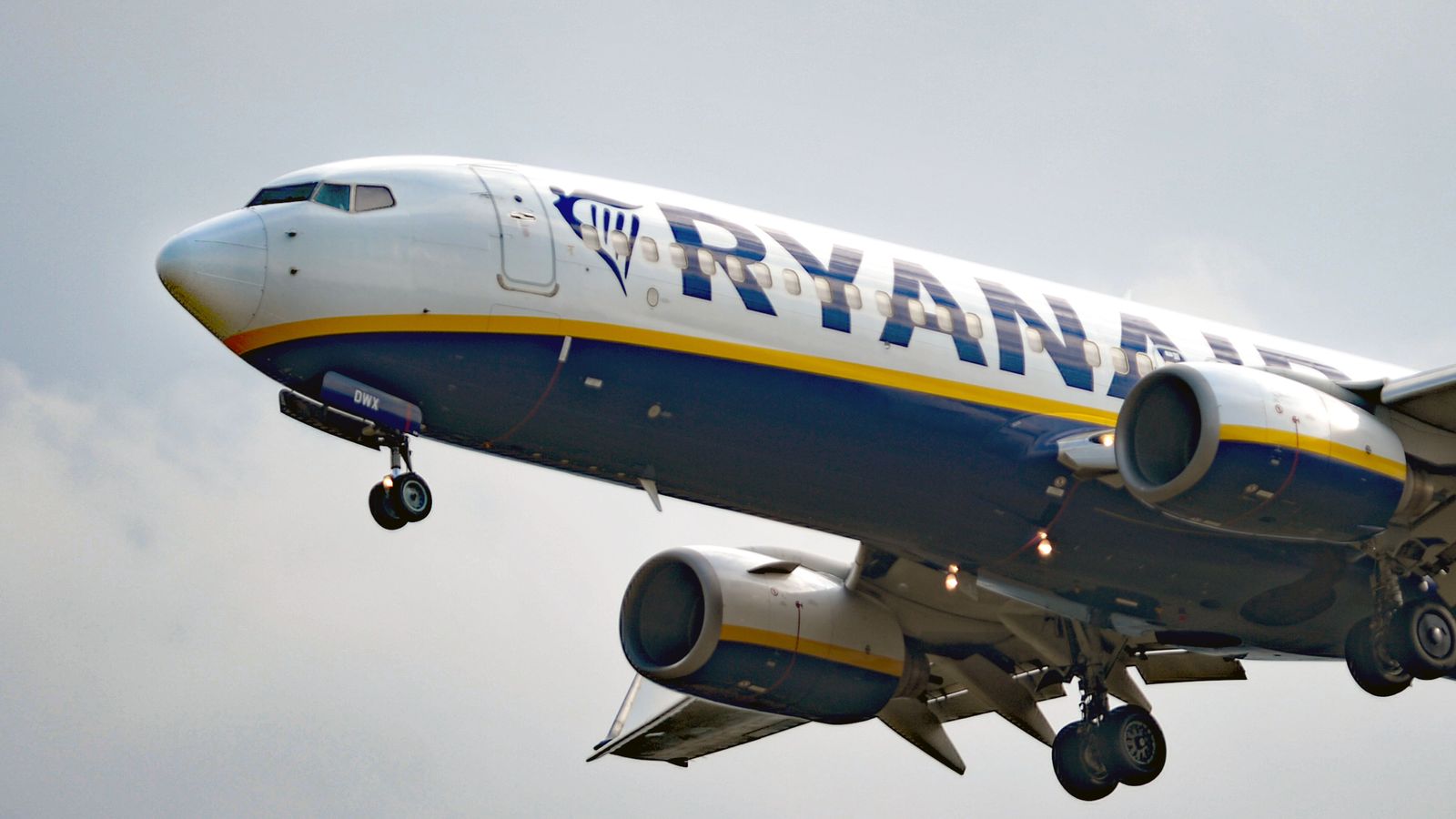
In eastern Germany, anti-far-right protestors are worried.
“Nazis out,” they shout as a long line winds its way down the street.
The far-right is rising in the state of Thuringia and, for the first time since the Second World War, an extreme-right party is expected to win the most seats in the state parliament when people vote on Sunday.
Bjorn Hocke and far-right party Alternative for Germany (AfD) is on track to get about 30% of the vote.
It’s also polling high in Saxony and Brandenburg, which are both holding elections in September.
“I came today because there is a fascist danger in Germany… it’s spreading all over the world, in Europe especially and in Germany,” says protester Jurgen.
“We are here to set a sign against the fascist danger.”
I ask his friend Monika why she thinks the AfD has grown in popularity.
“They [the public] are very angry about the government, and they think they can protest against the government by voting for the AfD,” she said.
Anti-immigration, Russia-friendly, Eurosceptic Hocke has been labelled a fascist and the Thuringia branch of the AfD has been classed as extreme by state security services, but supporters believe they are Germany’s future.
At the final campaign rally before the polls open in Erfurt, Hocke is received like a rock star.
He gets numerous rounds of applause as he addresses the crowd.
From the stage he shouts out slogans like “Germany first”, a catchphrase adapted from another populist’s playbook.
“The AfD is the only party that does something for the people,” says Martin who is among the crowd.
Immigration, crime, the economy – people list the perceived failings of the federal government as reasons why they are supporting the AfD.
Earlier this year, Hocke was found guilty of using a banned Nazi slogan employed by Hilter’s stormtroopers.
I ask a mother at the rally if she thinks he is an extremist and dangerous?
“No, he’s okay, it’s propaganda,” she replies.
It’s the same at every AfD event I’ve been to.
But that’s not the only reason why what people say here sounds familiar – whether it’s concerns over immigration, worries about the cost of living or a feeling of being forgotten by mainstream politicians, the issues helping to fuel the far-right in Germany are similar to the issues fuelling it across Europe.
Read more:
German prosecutors name suspect after three killed
Scholz ‘to increase deportations of rejected asylum seekers’
The arrest of an asylum seeker over last week’s fatal knife attack in Soligen has bolstered the AfD’s anti-immigration stance.
Their closest competitors the Christian Democratic Union (CDU) have also taken a harder line on asylum seekers and migration as they fight for votes.
They’re acutely aware dissatisfaction feeds the far-right.
“Unrest within society leads to a much faster increase in populists on the far-left and far-right and this altogether formulates a magical formula for a very unstable political situation,” says Mario Voigt, the CDU’s candidate in Thuringia.
While the AfD isn’t likely to get enough support to gain full control of the parliament in Thuringia, Sunday’s vote has again highlighted the deepening divisions in society and increased opponents’ fears the far-right is strengthening its grip in Germany.
















